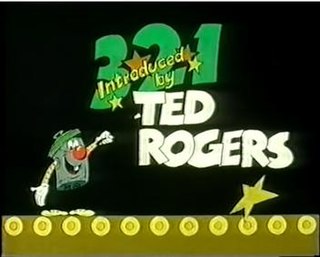Related Research Articles

The Weakest Link is a British television quiz show, mainly broadcast on BBC Two and BBC One. It was devised by Fintan Coyle and Cathy Dunning and developed for television by the BBC Entertainment Department. The game begins with a team of nine contestants, who take turns answering general knowledge questions within a time limit to create chains of nine correct answers in a row. At the end of each round, the players then vote one contestant, "the weakest link", out of the game. After two players are left, they play in a head-to-head penalty shootout format, with five questions asked to each contestant in turn, to determine the winner.

The 1950s quiz show scandals were a series of scandals involving the producers and contestants of several popular American television quiz shows. These shows' producers secretly gave assistance to certain contestants in order to prearrange the shows' outcomes while still attempting to deceive the public into believing that these shows were objective and fair competitions. Producers fixed the shows sometimes with the free consent of contestants and out of various motives: improving ratings, greed, and the lack of regulations prohibiting such conspiracy in game show productions.

3–2–1 was a British game show that was made by Yorkshire Television for ITV. It ran for ten years, from 29 July 1978 to 24 December 1988, with Ted Rogers as the host.

Brain of Britain is a BBC radio general knowledge quiz, broadcast on BBC Radio 4.
Going for Gold is a British television game show that originally aired on BBC1 between 12 October 1987 and 9 July 1996. It was revived for Channel 5 from 13 October 2008 to 20 March 2009.
Shafted was a British game show that aired on ITV from 5 to 26 November 2001 and was hosted by Robert Kilroy-Silk.

Fan Pan Tae is a quiz show of Thailand.
Studio 7 is an American game show that premiered on July 22, 2004 on The WB.

Who Wants to Be a Millionaire? is a British television quiz show, created by David Briggs, Steven Knight and Mike Whitehill for the ITV network. The programme's format has contestants taking on multiple-choice questions based upon general knowledge, winning a cash prize for each question they answer correctly, with the amount offered increasing as they take on more difficult questions. If an incorrect answer is given, the contestant will leave with whatever cash prize is guaranteed by the last safety net they have passed, unless they opt to walk away before answering the next question with the money they had managed to reach. To assist in the quiz, contestants are given a series of "lifelines" to help answer questions.

Miljoenenjacht, officially Postcode Loterij Miljoenenjacht, is a Dutch game show, sponsored by the country's postcode lottery, where a contestant and at-home viewer could win up to €5,000,000 or as little as €0.01. The show is broadcast at various times, spanning across six episodes for each set. The program was originally shown by TROS on NPO 2, but moved to creator John de Mol's channel Tien in 2005. After the channel was discontinued after its sale to the RTL Group, the program moved to RTL 4. In 2019, the program moved to SBS6 due to the transfer of Linda de Mol from RTL to SBS.

The People's Quiz is a BBC National Lottery game show broadcast on BBC One from 24 March to 23 June 2007, hosted by Jamie Theakston.
The $1,000,000 Chance of a Lifetime is an hour-long prime time quiz show that aired in Australia. It was later adapted for an American audience as It's Your Chance of a Lifetime, so as not to be confused with the American game show that used the title The $1,000,000 Chance of a Lifetime.
Get 100 is a British television children's quiz programme that was broadcast by CBBC between 16 April 2007 and 26 February 2009. It was originally hosted by Reggie Yates for the first series, then Hardeep Singh Kohli for the second series.
The Mole is an Australian reality television show that aired on the Seven Network. It is based on other versions of the original Belgian TV series The Mole that have aired in numerous countries. The most recent season aired in 2013.

The Chase is a British television quiz show broadcast on the ITV network, hosted by Bradley Walsh. Contestants play against a professional quizzer, known as the "chaser", who attempts to prevent them from winning a cash prize.

Fifteen to One is a British general knowledge quiz show broadcast on Channel 4. It originally ran from 11 January 1988 to 19 December 2003 and had a reputation for being one of the toughest quizzes on TV. Throughout the show's original run, it was presented and produced by William G. Stewart. Thousands of contestants appeared on the programme, which had very little of the chatting between host and contestants that is often a feature of other television quiz shows.

Pointless is a British television quiz show produced by Banijay subsidiary Remarkable Entertainment for the BBC hosted by Alexander Armstrong. In each episode, four teams of two contestants attempt to find correct but obscure answers to four rounds of general knowledge questions, with the winning team eligible to compete for the show's cash jackpot.

The Chase Australia is an Australian television quiz show based on the British program of the same name. It is broadcast on the Seven Network and premiered on 14 September 2015. Four contestants play against an opponent, known as the "chaser", who plays for the bank. The show was originally hosted by Andrew O'Keefe until July 2021, when he was replaced by Larry Emdur. The series began with Brydon Coverdale, Anne Hegerty, Matt Parkinson and Issa Schultz as chasers, with Mark Labbett joining in 2016. Shaun Wallace appeared as a guest chaser in 2018, and Cheryl Toh has appeared as a chaser since 2019. Mara Lejins joined as a chaser in 2022, and David Poltorak joined in 2024. Brandon Blackwell also appeared as a guest in 2024.
Gefragt – Gejagt (Asked—Chased) is a quiz show that has been broadcast on German television since 2012. It is the German adaptation of ITV's show The Chase.
Make Me an Egghead is a British quiz show on BBC Two presented by Jeremy Vine. It was a spin-off from Eggheads with the goal to find two further Eggheads, one male and one female, to complement the existing team of seven. It ran from 22 August to 23 September 2016 and was won by Steve Cooke and Beth Webster. A similar show, Are You an Egghead?, aired in 2008 and 2009.
References
- 1 2 Richard Osman (26 October 2012). "UK TV's worst ever gameshows". The Guardian. Retrieved 7 June 2013.